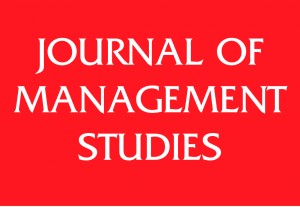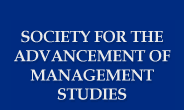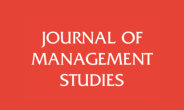
Repurposing Management for the Public Good: Processes, Obstacles and Unintended Consequences
Call for Papers
A Conference Sponsored by Journal of Management Studies & Society for Advancement of Management Studies
19th September – 21st September, 2022
Møller Institute, University of Cambridge, UK
The rise of management as occupation, activity and discipline is one of the key developments of the last century. Indeed, the word managerial is often used as a key term to qualify our age, world and society (Burnham, 1941; Chandler, 1984; Kiechel, 2012). Yet management broadly and management/business research and education more specifically have been subjected to extensive criticisms (Khurana, 2010; Fleming, 2020, 2021; Gill, 2021; Goshal, 2005; Parker, 2002; 2018; Spicer, 2017; Starkey and Pettigrew, 2016; Tourish 2019; 2020). These include the questionable foundations of its expertise and knowledge base and its failure to add value and address real life problems, its focus on procedural means at narrow targets at the expense of broader substantive goals, its allegiance with narrow sectional interests (such as those of owners) at the expense of broader concerns with the public good and ultimately the fact it often exacerbates rather than ameliorates societal challenges such as inequality, social cohesion, sustainability and climate change. More often than not, management is presented as a regressive force rather than one for good.
Similar arguments of course apply to management/business schools, journals and learned societies. These are at best viewed as generating flawed or irrelevant ideas which have limited relevance outside of academic audiences, to act in a conservative rather than enlightened role by helping to reproduce the status quo and legitimizing rather than challenging flawed or even exploitative practices, business models, and organizational structures and to contribute to societal problems such as inequality and climate change through their own activities. The main criticism here is that after a promising start, business/management schools as well as the broader management community have lost their way; forgetting their higher aims and becoming captured as hired hands for established interests (including their own) (Khurana, 2010).
Yet these criticisms are also reductive and do not capture the richness of the management world and the growing attention towards more progressive objectives (Fearlie, et al., 2010; Laasch et al., 2020; Kitchener and Delbridge, 2020; Tsui, 2013; 2016; Wickert et al., 2021; Van De Ven, 2007; Van De Ven and Johnson, 2006). Furthermore, every societal challenge is likely to require the contribution of management knowledge and practices as well as the direct input by managers, business leaders and scholars, if they are to be successfully addressed. To this effect the management community has certainly become much more reflexive about the limits of its current practices and activities and has been working on developing a whole range of alternative manifestos, programmes or visions which should help to restore its progressive and civilizing function. Initiatives such as Prime, DORA, the work of the RRBM network as well as more generally the proliferation of calls, events and initiatives on this topic provide plenty of evidence of widespread aspirations to repurpose management institutions, research and education.
Whilst the argument for repurposing management to better serve higher aims are clearly well established, how to translate these objectives into practices is less clear (but see Fearlie et al., 2010; Kitchener and Delbridge, 2020). This is not surprising since as scholarship in organization theory and strategy warns us of the existence of implementation gaps separating good intentions from their effective application. This is particularly so when radical change which goes against the interests of powerful incumbents and the entrenched role of deeply institutionalized rules, norms and cognitive schemes may be required. Thus the literature identifies a whole range of mechanisms such as de-coupling, tokenism, green-washing or capture which often frustrate change programmes.
Against this backdrop this conference seeks to better understand how the case for more responsible management can be put into practice. This will include, inter alia, exploring the effectiveness of different initiatives, the barriers these face and how these might be overcome as well the nature of alternative strategies that we may want to consider. At the same time as we transition towards a more responsible management agenda, we should pay more attention to its effects and in particular the unintended consequences, trade-offs and even paradoxes that this may generate. At the most obvious level we should be querying how effective we have been so far in delivering a more responsible management agenda and in turn how effective this has been in helping to serve the public interest. Furthermore, we aim to explore what this means for different stakeholders, by seeking to understand the opportunities and challenges that transitioning to more responsible management may involve for academics, business/management schools’ leaders, and journals editors as well as the broader community of the users of management and business knowledge.
By bringing together new theoretical and empirical contributions, we hope that our conference will examine 1) how far we have transitioned towards a more responsible management agenda (2) the process and strategies through which this might be best accomplished (3) the obstacles and barriers which may be hindering this journey and how these may be addressed and (4) the intended and unintended consequences this raises for different stakeholders.
We are open to quantitative, qualitative, theoretical papers, reviews, and meta-analyses which address questions that include but are not limited to the following:
- How responsible is current management research and practice?
- What areas of accountability in management are clearly lacking?
- How can we promote the adoption of more responsible practices?
- What new models, structures or practices need to be developed to support a more responsible management research and practice agenda?
- What’s the role of new ventures in managing for the public good?
- What are the reasons for high or low levels of responsibilization in management compared to other disciplines (e.g., medicine, law)?
- What are the barriers which may affect the development of a more responsible management research and practice agenda? How may these be addressed?
- What are the short-term and long-term consequences of a lack of responsibilization?
- What are the unintended consequences of transitioning to a more responsible management agenda (e.g., additional administrative burdens, performance expectations, work intensification) and how can these be addressed?
- What are the trade-offs of adopting more responsible policies and practices?
- What are illustrative examples of businesses that manage for the public good and what can we learn from them?
Keynote Speakers
Dean Rakesh Khurana is a professor of sociology and organizational behavior at Harvard University and former Faculty Dean of Cabot House, became Danoff Dean of Harvard College on July 1, 2014.
Khurana received his B.S. from Cornell University, and began graduate studies at Harvard in 1993, earning his Ph.D. in 1998 through a joint program between Harvard Business School (HBS) and the Graduate School of Arts and Sciences (GSAS).
Professor Martin Kitchener is professor of management at Cardiff Business School and he chairs the Chartered Association of Business School’s Taskforce on Business School and Public Good.
Martin’s research concentrates on issues of governance, change and performance in public services, and most recently in higher education. In the UK, he has led externally-funded studies of hospital patient safety, line management in residential social work, and change in mental health.The outputs of his research are published widely (see research tab) and have had considerable impact on practice and policy.
Call for Papers
An abstract of up to 1,000 words should be submitted by 16.00 GMT, 10th February 2022 by email to Joanne Cheseldine at business.jms@durham.ac.uk.
Acceptance of abstracts will be notified by 3th March 2022.
Full papers are to be submitted for circulation by 16.00 BST, 12th August 2022.
Authors of papers presented at the conference will be invited to submit their papers for possible publication in a special issue of the Journal of Management Studies related to the topic of the conference. Presentation at the conference does not guarantee publication of the article nor will submissions to the special issue be limited to those that present at the conference.
Call for Participation
There is no conference fee, and we encourage a variety of modes of participation, from presentation of academic papers to the contribution of debate by taking on the role of discussant.
In addition to leading academics in the field of management studies, the conference will also bring together promising new researchers. Limited support for travel and accommodation will be offered to outstanding doctoral students.
Conference Organizing Committee
The conveners of the conference are Daniel Muzio, Elena Dalpiaz, Hannes Leroy, Gideon Markman, Kristina Potocnik and Christopher Wickert and the editorial management team of Margaret Turner, Joanne Cheseldine, Gemma Parkinson, Melissa MacAulay and Alice Williams.

